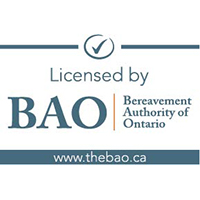
When you think about awkward conversations with your parents, your mind probably goes to those pre-adolescent years when they asked you if you knew about “the birds and the bees”. Or perhaps you think about those questions they asked you in your younger adult years. “When are you going to find that special someone?” “When will you two start having kids?”
But there is another set of serious and yes potentially uncomfortable conversations that many of us haven’t had yet but need to. We either a) may not realize that they are important to have, or b) we know we need to have them but put them off because they aren’t easy. These are the ones we have with our aging parents. And unlike when you were a pre-teen, they will more than likely need to be initiated by you.
Having an aging parent (or grandparent or another relative for that matter) can be quite challenging as you try to balance respecting their independence with making decisions that are best for them.
Of course each person has their own unique stories and experiences. And there aren’t any rules for how and when to have these conversations. But as a general guideline, the following are five conversations that you’ll want to think about beginning sooner than later with your folks. The last thing you want is to be forced to have them because a parent has had an accident or goes through a sudden decline in health. It’s a stressful enough time without the added pressure of having to guess what their wishes are.

-
How’s Your Health?
Trying to get beyond the classic “How are you?” and “Good, how are you?” can be tough. Do you know what medications they take, who their doctors and healthcare practitioners are and how often they visit them? Clues they may need to visit could include them talking about a decrease in appetite, having trouble sleeping or decreased mobility.
Regular check ins on their mental and emotional health are important too. Keep an ear out for signs of confusion, anxiety or even fear about handling everyday tasks. Of course we know that any shifts in personality need our attention immediately before the potential of things spiraling out of control.
The goal is building a sense of trust with your parents and in-laws so that these kinds of conversations are frequent and normalized.
-
Where to Live?
The “where to live” and “when/where to move” questions aren’t easy. Many seniors want to live in their house as long as possible. Thankfully, more and more services are available to allow seniors to stay home longer. Eventually though, there comes a time when downsizing from the house to a condo, retirement home, long-term care home or a family member’s home is what makes the most sense.
Do you know what your parents’ preferences are? Are there wait lists for retirement homes that you can get their names on? Do you and your parents want to both sell your homes and buy one that fits both your needs?
Again, this won’t likely be one conversation, but beginning them sooner will help avoid any miscommunication down the road. A far more potentially awkward conversation you don’t want to have could start with, “But I thought I was going to be living with you, dear!”
-
Money, Money, Money
This one is a tough one and can be one of the topics we avoid most. But now might be the time to begin to open up the books on your aging parents’ finances.
What are their sources of income? Do they have a budget? A financial planner? Are they overpaying for anything like hydro or cable? Are they set up well financially for the long-term?
Again, having these conversations sooner rather than later can help avoid a lot of future headaches. -
Can We Talk About End-of-Life?
Of course this is the one we can avoid the most. Facing that our loved ones will die one day is one of the most painful and difficult realities of life. But what is even scarier is being put in a position where you are forced to make decisions without the knowledge of what they wanted. This can apply to a wide range of things including whether they want to be kept alive by artificial means to the type of burial or cremation they prefer.
Is there a will with people named as executors for both health decisions and financial ones? The people who can determine what happens after death are the executors. If there is no will, those decision makers become the closest next of kin which may or may not be who you think it is. Having these important elements in place while your parents are still healthy can bring so much peace of mind to all of you.
-
What’s on Your Bucket List?
This last one may sound “too morbid” but can also be more of a fun way to begin a conversation that leads to one of the others. Mom, did you always want to take piano lessons? Dad, is there a place you always wanted to visit but never got around to seeing? Whatever is on their bucket list, now is the time to help them achieve the dreams that we can still make a reality for them.One of the key reasons life is so precious is that we know our time here is limited.
Let’s get the harder conversations with our aging parents out of the way. That way, we can focus on enjoying however much time we are gifted with them doing the things we love. THOSE, after all, are the memories we will hold on to when they are no longer physically with us.





